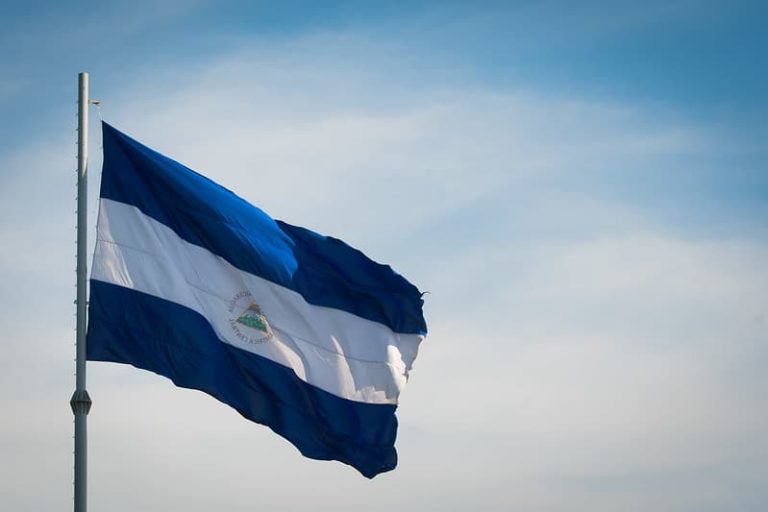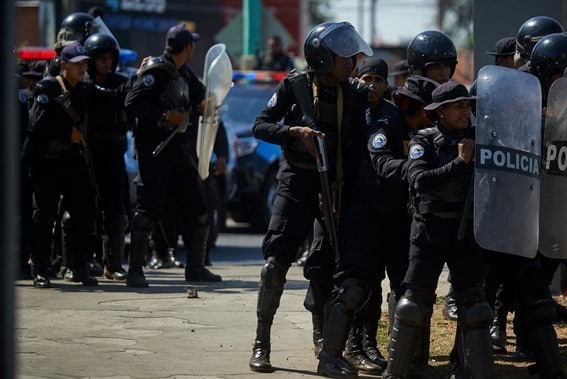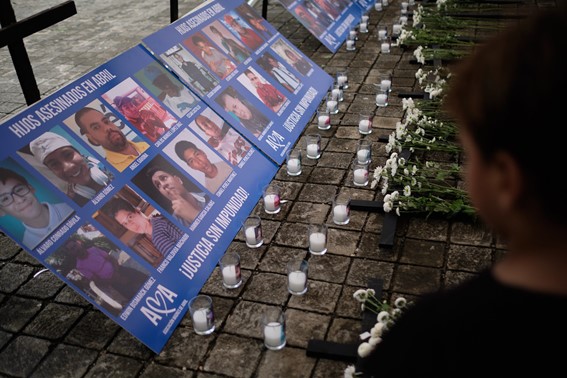14 de enero 2021

Children of Exile: The Births “Sowing Hope” in the Camp of Nicaraguan Farmers

PUBLICIDAD 1M
PUBLICIDAD 4D
PUBLICIDAD 5D
The Proposals’ Group for Nicaragua points out the challenges and actions for a new administration after the departure of Daniel Ortega.

Civil society organizations and more than a hundred Nicaraguan professionals presented “A Nation Proposal” for after a change of Government
Civil society organizations and more than a hundred Nicaraguan professionals presented “A Nation Proposal” for after a change of Government. The Proposals’ Group assures that “they are contributions for a democratic, free Nicaragua, with social justice, with respect for citizen rights, tolerance and pluralism; with a diversified and sustainable economy for the benefit of all.”
The 191-page document is intended for a future government administration, after the departure from power of Daniel Ortega. It takes into account the general elections scheduled for November of this year, although they have not yet been called.
In the document, problems ranging from poverty to environmental issues and risk-management are addressed. In addition, a Government Proposal is presented “that allows the political transition and the construction of democracy in Nicaragua to be carried out, once the 2021 elections are held.” Its implementation covers a period of five years, from the inauguration of the “new government.”
Broadly speaking, the proposal is divided into four areas: a) Institutional reform; b) Social policy; c) Economic policy, and d) cross-cutting aspects of great importance: environment, natural disaster risk management, gender equality, children, adolescents and youth, and an “Immediate Relief Plan” for the most vulnerable population.
Assuming free elections in November and the opposition would win, they argue that the incoming government would have on its shoulders a series of challenges that this group of experts has identified.
The first one is also the most urgent: alleviate the situation of the poorest. To do this, they recommend taking “urgent” measures to calm the condition of hunger, the lack of basic services and the search for answers for the people that have lost their jobs. The second aspect is based on the restoration of respect for human rights. Then to stop the socioeconomic decline of the country, rebuild the social fabric, reestablish spaces for citizen participation and defend press freedom.

Riot police in a day of repression against a protest in March of 2019. // Photo: Archive / Carlos Herrera / Confidencial
All these points have been weakened by the political crisis caused by the Ortega-Murillo regime. Since the demands of April 2018, and after two rounds of dialogue, the government refused to comply with agreements and guarantee an orderly solution to the crisis. Instead they increased the levels of repression and harassment of opponents, civil society and the media.
“Nicaragua has a development model that has not been able to solve the problems that affect the well-being of our families. Along with three consecutive years of economic recession, the country suffers serious impacts on the precarious quality of life of the population,” stated the study.
Experts point to a series of barriers that a new administration will have to break. Such as the politicized justice system and the National Assembly as a factory of laws tailored to the Ortega regime. According to this analysis, “public administration is governed by loyalty and not by performance.” As an example, they cite the punitive laws that the regime and its legislators approved between October and December 2020.
The proposal calls for a “reform of the State that ensures the reestablishment of the democratic political regime and its role as a facilitator of development and citizen welfare. For this, it calls for “reestablishing independence and balance of power,” guaranteeing transparent state management, accountability and zero tolerance for corruption.
Among the lines of action proposed in this section, it brings up the elimination of discretionary resources of the Assembly. Likewise, the deputy seat for the presidential candidate that finishes in second place and the outgoing president.”
Another aspect would focus on a reform of the country’s defense and security sector, with mechanisms that “guarantee civilian leadership based on democratic principles and respect for human rights.”

Makeshift altar with photos of those killed by the Ortega repression during the April Rebellion, set up outside Managua’s Cathedral, on May 30, 2019. // Archive: Carlos Herrera
Regarding freedom of expression, it recommends the new government immediately returns the confiscated properties of 100% Noticias, Confidencial and Esta Semana, illegally taken over by the Ortega regime in December 2018. Likewise, the repeal of the Special Cybercrimes Law, better known as “Gag Law” and reactivation of the Law on Access to Public Information.
The document is full of recommendations and lines of action for most aspects that are related to public management. But also, about those with “guarantees of non-repetition” for the crimes committed during the April 2018 protests.
To this end, it recommends that through a “Special Law of Truth, Justice, Reparation and Non-Repetition” a Special Prosecutor’s Office be created that acts as “a specialized justice system to exercise criminal action on behalf of the victims of politically motivated crimes.”
They also propose a “Victim Reparation Law” with compensation mechanisms, also in line with the “Comprehensive Reparations Law” prepared by the International Group of Independent Experts (GIEI in Spanish), of the Inter-American Commission on Human Rights (IACHR), expelled by the Ortega regime in December 2018. This includes the implementation of a program of “symbolic reparations”, with the creation of museums of memory, monuments and the official request for forgiveness from the State.
PUBLICIDAD 3M
Periodista nicaragüense con tres años de trayectoria en cobertura de temas culturales y derechos humanos. Ganador del Premio Pedro Joaquín Chamorro a la Excelencia Periodística.
PUBLICIDAD 3D